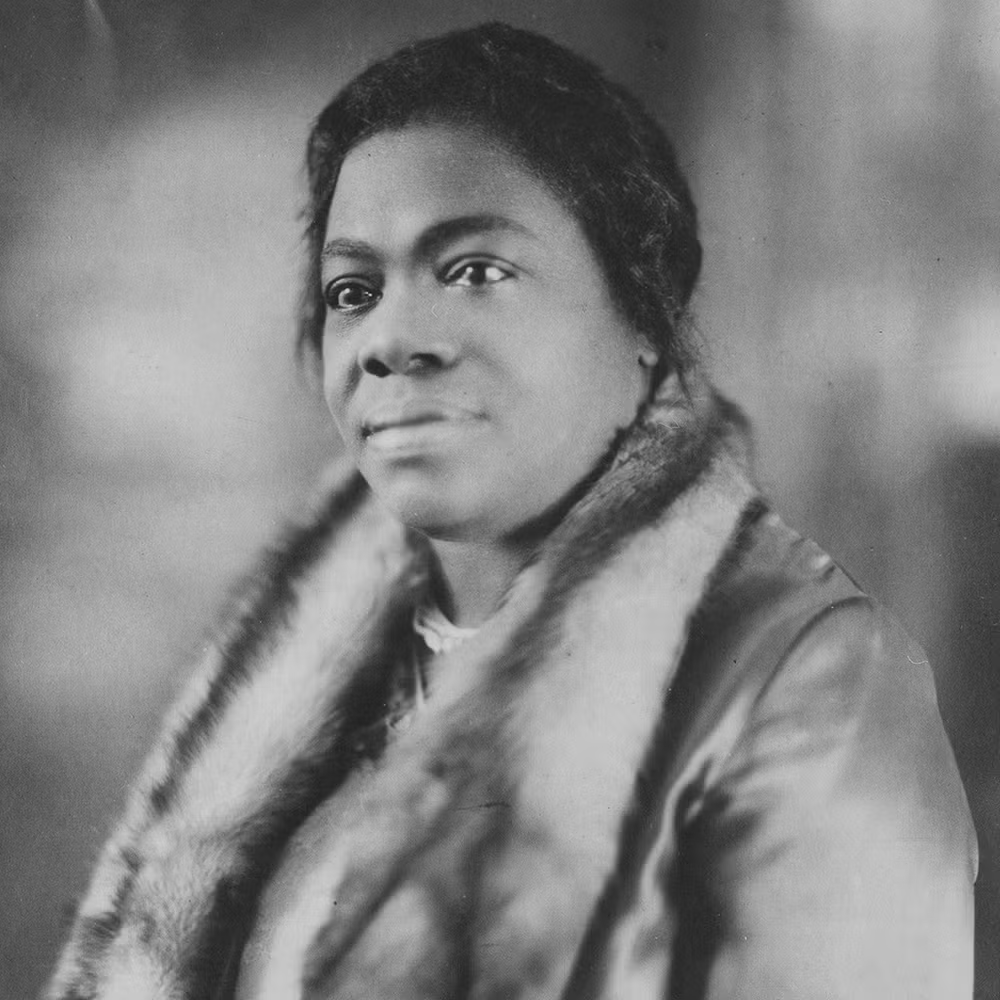
Table of Contents
Who Was Mary McLeod Bethune?
Mary McLeod Bethune was a pioneering educator and civil rights leader, recognized for her profound contributions to African American education and her advocacy for racial equality. Born to formerly enslaved parents, she dedicated her life to advancing educational opportunities for African Americans and founded the Daytona Normal and Industrial Institute, which eventually became Bethune-Cookman College. Bethune also played a pivotal role in founding the National Council of Negro Women in 1935. She passed away in 1955, leaving a lasting legacy in education and civil rights.
Early Life
Mary Jane McLeod was born on July 10, 1875, in Mayesville, South Carolina, as one of 17 children in a family of formerly enslaved people. Her early life was marked by poverty, with many members of her family working in the cotton fields. However, she became the first in her family to attend school when a missionary established an educational facility for African American children nearby. Despite the hardships, Bethune walked miles each day to attend school, diligently absorbing knowledge that she later shared with her family.
Bethune’s academic journey continued when she received a scholarship to the Scotia Seminary (now Barber-Scotia College) in Concord, North Carolina, where she graduated in 1893. She then attended the Dwight Moody’s Institute for Home and Foreign Missions in Chicago, completing her studies in 1895. Upon returning to the South, Bethune embarked on a career in teaching, marking the beginning of her lifelong commitment to education.
Acclaimed Educator
Bethune’s career as an educator spanned nearly a decade. She married Albertus Bethune, a fellow teacher, in 1898, and they had one son, Albert McLeod Bethune. The couple eventually separated in 1907. In 1904, Bethune founded the Daytona Normal and Industrial Institute for Negro Girls in Daytona, Florida, with just five students. Through her leadership, the school rapidly grew, serving over 250 students in a few years.
In 1923 (or 1929, according to some sources), the Daytona Institute merged with the Cookman Institute for Men, forming Bethune-Cookman College. Bethune served as the institution’s president, a role she held until 1942. The college became one of the few higher education institutions available to African American students, offering opportunities for academic advancement and a stepping stone to greater social and economic opportunities. Bethune’s dedication to education and racial uplift continues to inspire generations.
Activist and Advisor
In addition to her pivotal role at Bethune-Cookman College, Mary McLeod Bethune made significant contributions to American society at large. She served as president of the Florida chapter of the National Association of Colored Women (NACW) for several years and, in 1924, rose to become the organization’s national president, defeating renowned reformer Ida B. Wells for the top position.
Bethune also became deeply involved in public service, offering her expertise to multiple presidential administrations. In 1924, President Calvin Coolidge invited her to participate in a conference on child welfare. Under President Herbert Hoover, Bethune served on the Commission on Home Building and Home Ownership and participated in a committee on child health. However, her most notable government roles came with President Franklin D. Roosevelt’s administration.
In 1935, Bethune was appointed as a special advisor to Roosevelt on minority affairs, and in that same year, she founded the National Council of Negro Women. This organization represented the interests of various groups advocating for African American women’s rights. The following year, she was appointed to the position of director of the Division of Negro Affairs within the National Youth Administration. In this capacity, she focused on providing job opportunities for young African Americans. Bethune also became a trusted confidante and advisor to both President Roosevelt and First Lady Eleanor Roosevelt, further solidifying her influence in public service.
Later Years, Death, and Legacy
After stepping down from her leadership role at Bethune-Cookman College in 1942, Bethune dedicated the remainder of her life to advocating for social causes. She relocated to the National Council of Negro Women’s headquarters in Washington, D.C., in 1943, where she continued her activism. As an early member of the National Association for the Advancement of Colored People (NAACP), Bethune represented the organization at the 1945 United Nations founding conference alongside W.E.B. Du Bois. In the early 1950s, President Harry Truman appointed her to a national defense committee and named her an official delegate to a presidential inauguration in Liberia.
In her later years, Bethune returned to Florida, where she passed away on May 18, 1955, in Daytona Beach. She is remembered for her tireless efforts to advance the rights of African Americans and women. Before her death, she wrote My Last Will and Testament, which both reflected on her life and legacy and addressed various estate matters. Among her spiritual bequests, she wrote: “I leave you a thirst for education. Knowledge is the prime need of the hour.” She concluded with, “If I have a legacy to leave my people, it is my philosophy of living and serving.”
Bethune’s contributions have been honored in numerous ways. In 1973, she was inducted into the National Women’s Hall of Fame. The U.S. Postal Service issued a stamp featuring her likeness in 1985, and in 1994, the National Park Service acquired the former headquarters of the NCNW. This site is now designated as the Mary McLeod Bethune Council House National Historic Site.
